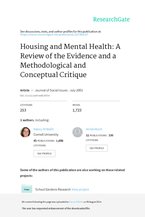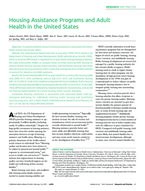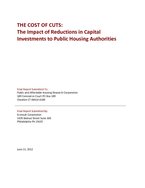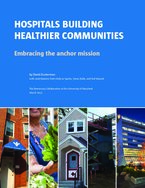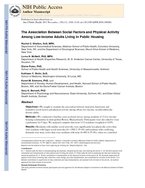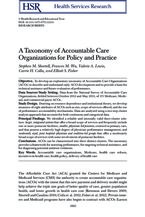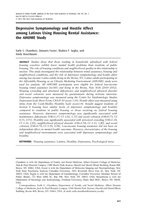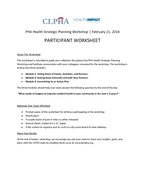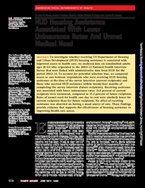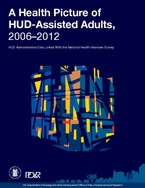0
Research
Community:
Jul 20, 2018
Despite the fact that people invest more financial, temporal, and psychological resources in their homes than in any other material entity, research on housing and mental health is remarkably underdeveloped. We critically review existing research on housing and mental health, considering housing type (e.g., singlefamily detached versus multiple dwelling), floor level, and housing quality (e.g., structural damage). We then discuss methodological and conceptual shortcomings of this literature and provide a theoretical framework for future research on housing quality and mental health.
Authored by:
Topics: Depression, Health, Housing, Mental health, Research
 Shared by Housing Is
Shared by Housing Is
Housing Is posted a
on Jul 20, 2018
Despite the fact that people invest more financial, temporal, and psychological resources in their homes than in any other material entity, research on housing and mental health is remarkably underdeveloped.
0
Research
Community:
Jul 19, 2018
The link between federal housing policy and public health has been understood since the nineteenth century, when housing activists first sought to abolish slums and create healthful environments. This article describes how the Obama administration—building on these efforts and those that followed, including the Great Society programs of President Lyndon Johnson—has adopted a cross-sector approach that takes health considerations into account when formulating housing and community development policy. The federal Department of Housing and Urban Development fully embraces this “health in all policies” approach. Nonetheless, the administration’s strategy faces challenges, including fiscal and political ones. Some of these challenges may be overcome by conducting quality research on how housing and community development policies affect health outcomes, and by developing a federal budget strategy that takes into account how investments in one sector contribute to cost savings in another.
Authored by:
Topics: Affordable Care Act, Community development, Disabilities, Health, Healthy homes, Housing, Legislation & Policy, Low-income, Mobility, Partnerships, Place-based, RAD, Research
 Shared by Housing Is
Shared by Housing Is
Housing Is posted a
on Jul 19, 2018
The link between federal housing policy and public health has been understood since the nineteenth century, when housing activists first sought to abolish slums and create healthful environments.
0
Research
Community:
Jul 18, 2018
We examined whether receiving housing assistance is associated with improved health and well-being using a nationally representative sample of the US population. Specifically, we examined whether entry into housing assistance was associated with better reported health or reduced psychological distress relative to awaiting admission and whether there were differential effects associated with the 3 primary program categories: public housing, housing choice vouchers, and multifamily housing. Furthermore, we explored whether the health effects of housing assistance are mediated by neighborhood characteristics.
Authored by:
Topics: Health, Housing, Low-income, Mental health, Research
 Shared by Housing Is
Shared by Housing Is
Housing Is posted a
on Jul 18, 2018
We examined whether receiving housing assistance is associated with improved health and well-being using a nationally representative sample of the US population.
0
Research
Community:
Jul 17, 2018
This study uses a cost benefit analysis to estimate the potential net impacts of proposed reductions by the US Department of Housing and Urban Development (HUD) in federal funding of capital investment in public housing authorities (PHAs). It examines the extent to which reductions in capital investment in PHAs impose costs on governments at all levels, as well as local communities, businesses, PHA residents, and society as a whole. The report narrates and estimates the incidence, distribution, and scale of these impacts and compares them against the total amount cut from annual Capital Fund Program Grants, which fund maintenance and modernization of public housing properties. The Public and Affordable Housing Research Corporation (PAHRC) partnered with Econsult Corporation in this effort to inform current discussions regarding future funding cuts by HUD to PHAs for capital expenditures, by identifying potential negative impacts resulting from these cuts, and attempting to quantify those impacts and compare them against the cut amounts.
Authored by:
Topics: Cost effectiveness, Funding, Research
 Shared by Housing Is
Shared by Housing Is
Housing Is posted a
on Jul 17, 2018
This study uses a cost benefit analysis to estimate the potential net impacts of proposed reductions by the US Department of Housing and Urban Development (HUD) in federal funding of capital investment in public housing authorities (PHAs). It examines the extent to which reductions in capital inves
0
Research
Community:
Jul 13, 2018
Hospitals Building Healthier Communities aims to provide a resource for hospitals considering adopting or further integrating community engagement and economic development into their daily operations and their core mission.
Authored by:
Topics: Community development, Data sharing, Health, Housing, Low-income, Partnerships, Place-based, Research
 Shared by Housing Is
Shared by Housing Is
Housing Is posted a
on Jul 13, 2018
Hospitals Building Healthier Communities aims to provide a resource for hospitals considering adopting or further integrating community engagement and economic development into their daily operations and their core mission.
0
Research
Community:
Jul 12, 2018
We sought to examine the association between structural, functional, and normative social factors and physical activity among urban, low-income, racially/ethnically diverse adults.
Authored by:
Topics: Exercise, Health, Housing, Low-income, Obesity, Research
 Shared by Housing Is
Shared by Housing Is
Housing Is posted a
on Jul 12, 2018
We sought to examine the association between structural, functional, and normative social factors and physical activity among urban, low-income, racially/ethnically diverse adults.
0
Research
Community:
Jul 12, 2018
To construct our taxonomy, we use data from the first National Survey of ACOs, fielded between October of 2012 and May of 2013. The survey sample included (1) ACOs participating in Medicare ACO programs; (2) ACOs participating in state Medicaid ACO programs; and (3) ACOs formed in partnership with commercial payers.
Authored by:
Topics: Affordable Care Act, Medicaid / Medicare, Metrics, Research
 Shared by Housing Is
Shared by Housing Is
Housing Is posted a
on Jul 12, 2018
To construct our taxonomy, we use data from the first National Survey of ACOs, fielded between October of 2012 and May of 2013.
0
Research
Community:
Jul 11, 2018
Studies show that those residing in households subsidized with federal housing vouchers exhibit fewer mental health problems than residents of public housing. The role of housing conditions and neighborhood quality in this relationship is unclear. This study investigated the relationship between rental assistance, housing and neighborhood conditions, and the risk of depressive symptomology and hostile affect among low-income Latino adults living in the Bronx, NY
Authored by:
Topics: Depression, East Coast, Health, Housing, Low-income, Mental health, Obesity, Racial inequalities, Research, Stability
 Shared by Housing Is
Shared by Housing Is
Housing Is posted a
on Jul 11, 2018
Studies show that those residing in households subsidized with federal housing vouchers exhibit fewer mental health problems than residents of public housing. The role of housing conditions and neighborhood quality in this relationship is unclear.
0
Research
Community:
Jul 11, 2018
A Research Review and Comment on Future Directions for Integrating Housing and Health Services
Authored by:
Topics: Affordable Care Act, Cost effectiveness, Data sharing, Exercise, Health, Homelessness, Housing, Low-income, Medicaid / Medicare, Mental health, Metrics, Nutrition, Obesity, Partnerships, Preventative care, Research, Supportive housing
 Shared by Housing Is
Shared by Housing Is
Housing Is posted a
on Jul 11, 2018
A Research Review and Comment on Future Directions for Integrating Housing and Health Services
0
Research
Community:
Jan 18, 2018
A new study suggests that America’s great nutritional divide goes deeper than the problem of food access within cities.
Authored by: Richard Florida for City Lab
Topics: Child welfare, Food insecurity, Health, Low-income, Nutrition, Obesity, Racial inequalities, Research
 Shared by Housing Is
Shared by Housing Is
Housing Is posted a
on Jul 5, 2018
Richard Florida for City Lab
A new study suggests that America’s great nutritional divide goes deeper than the problem of food access within cities.
0
Research
Community:
Jan 1, 2018
Authored by: Michelle S. Manno and Jennifer Miller Gaubert for Implementation Research Incubator (MDRC)
Topics: Research
 Shared by Housing Is
Shared by Housing Is
Housing Is posted a
on Jul 5, 2018
Michelle S. Manno and Jennifer Miller Gaubert for Implementation Research Incubator (MDRC)
0
Research
Community:
Jan 1, 2018
A Promising Approach to Improving Student Outcomes
Authored by: Janet Quint and Barbara Condliffe for MDRC
Topics: Child welfare, Education, Funding, Mental health, Metrics, Place-based, Research, Youth
 Shared by Housing Is
Shared by Housing Is
Housing Is posted a
on Jul 5, 2018
Janet Quint and Barbara Condliffe for MDRC
A Promising Approach to Improving Student Outcomes
0
Research
Community:
Jun 8, 2018
What is the difference between communities that are able to recover from disinvestment and those that cannot? The answer, according to recent research from MDRC, are the presence of strong social networks.
Authored by: Maurice A. Jones for Stanford Social Innovation Review
Topics: Disabilities
 Shared by Mica O'Brien
Shared by Mica O'Brien
Mica O'Brien posted a
on Jun 28, 2018
Maurice A. Jones for Stanford Social Innovation Review
What is the difference between communities that are able to recover from disinvestment and those that cannot? The answer, according to recent research from MDRC, are the presence of strong social networks.
0
Webinar
Community:
Feb 27, 2018
Worksheet from CLPHA's February 2018 Health Strategic Planning Workshop, co-facilitated with Health Impact Project and Grantmakers in Health
Authored by: CLPHA, and Health Impact Project (Pew/RWJF)
Topics:
 Shared by Steve Lucas
Shared by Steve Lucas
Steve Lucas posted a
on Feb 27, 2018
The 2018 CLPHA Health Strategic Planning Workshop, co-facilitated with Health Impact Project (a collaboration of Pew Charitable Trusts and Robert Wood Johnson Foundation) and Grantmakers in Health, convened over 35 communities across the country. Participating teams included internal PHA staff at member agencies who work on health-related initiatives as well as external partners that provide services, education, and other health resources for residents.
CLPHA, and Health Impact Project (Pew/RWJF)
Worksheet from CLPHA's February 2018 Health Strategic Planning Workshop, co-facilitated with Health Impact Project and Grantmakers in Health
0
Webinar
Community:
Feb 21, 2018
Presentation from CLPHA's February 2018 Health Strategic Planning Workshop, co-facilitated with Health Impact Project and Grantmakers in Health
Authored by: CLPHA, Health Impact Project (Pew/RWJF), and Grantmakers in Health
Topics: Affordable Care Act, CLPHA, Community development, Data sharing, Health, Healthy homes, Homelessness, Housing, Medicaid / Medicare, Mental health, Obesity, Partnerships, Place-based, Research, Supportive housing, TA
 Shared by Steve Lucas
Shared by Steve Lucas
Steve Lucas posted a
on Feb 27, 2018
The 2018 CLPHA Health Strategic Planning Workshop, co-facilitated with Health Impact Project (a collaboration of Pew Charitable Trusts and Robert Wood Johnson Foundation) and Grantmakers in Health, convened over 35 communities across the country. Participating teams included internal PHA staff at member agencies who work on health-related initiatives as well as external partners that provide services, education, and other health resources for residents.
CLPHA, Health Impact Project (Pew/RWJF), and Grantmakers in Health
Presentation from CLPHA's February 2018 Health Strategic Planning Workshop, co-facilitated with Health Impact Project and Grantmakers in Health
0
Research
Community:
Jun 22, 2017
Alan E. Simon, Andrew Fenelon, Veronica Helms, Patricia C. Lloyd and Lauren M. Rossen, Health Affairs, 36, NO. 6 (June 2017): 1016–1023
Authored by:
Topics: Health, Medicaid / Medicare
 Shared by Steve Lucas
Shared by Steve Lucas
Steve Lucas posted a
on Jun 22, 2017
Abstract: "To investigate whether receiving US Department of Housing and Urban Development (HUD) housing assistance is associated with improved access to health care, we analyzed data on nondisabled adults ages 18–64 who responded to the 2004–12 National Health Interview Survey that were linked with administrative data from HUD for the period 2002–14.
Alan E. Simon, Andrew Fenelon, Veronica Helms, Patricia C. Lloyd and Lauren M. Rossen, Health Affairs, 36, NO. 6 (June 2017): 1016–1023
0
Research
Community:
Jun 22, 2017
Unprecedented descriptive analysis linking HUD administrative data and results from the National Health Interview Survey (pre-Affordable Care Act)
Authored by:
Topics: Affordable Care Act, Cost effectiveness, Dental, Depression, Exercise, Health, Healthy homes, Housing, Medicaid / Medicare, Mental health, Nutrition, Obesity, Research, Seniors, Smoke-free, Substance abuse
 Shared by Steve Lucas
Shared by Steve Lucas
Steve Lucas posted a
on Jun 22, 2017
From the Office of Policy Development and Research (PD&R) at the U.S. Department of Housing and Urban Development:
Unprecedented descriptive analysis linking HUD administrative data and results from the National Health Interview Survey (pre-Affordable Care Act)
0
Research
Community:
May 24, 2017
CSH reviewed more than 32 studies of supportive housing and compiled information about outcomes (housing, healthcare, and more). These reviews should be helpful for anyone looking to quantify particular impacts of housing. Please note that this review was not undertaken in an academic or systematic way; we make no claims about the strength of these evaluations or their findings.
Authored by: CSH
Topics: Health, Healthy homes, Homelessness, Housing, Supportive housing
 Shared by Steve Lucas
Shared by Steve Lucas
Steve Lucas posted a
on Jun 8, 2017
CSH reviewed more than 32 studies of supportive housing and compiled information about outcomes (housing, healthcare, and more). These reviews should be helpful for anyone looking to quantify particular impacts of housing.
0
Research
Community:
May 3, 2017
This article explores racial disparities between assisted housing outcomes of black and white and white households with children. We compare the assisted housing occupied by black and white households with children, and examine whether young adult education, employment, and earnings outcomes in 2011 differ between blacks and whites who spent part of their childhood in assisted housing in the 2000s. We use a special version of the Panel Study of Income Dynamics (PSID) that has been address-matched to federally assisted housing, and the PSID’s Transition to Adulthood supplement, along with geocode-matched data from the U.S. Census Bureau, American Community Survey (ACS), CoreLogic real estate data, and U.S. Department of Housing and Urban Development (HUD). Statistical methods include difference in means, logit and general linear models. We find no evidence of racial disparities in the type of assisted housing program, the physical quality of project-based developments, or the management of public housing developments in the 2000 decade. But black households with children are more likely to live in assisted housing that is located in poorer quality neighborhoods. Multivariate tests reveal that the worse outcomes of black young adults compared with whites disappear once socioeconomic differences are taken into account. The discrepancy in assisted housing neighborhood quality experienced by black and white children makes no additional contribution to predicting young adult outcomes. Nonetheless, black children living in relatively better assisted housing neighborhoods tend to have better outcomes in young adulthood than those who live in poorer quality assisted housing neighborhoods. We discuss sources of racial disparity in neighborhood quality, and the policies enacted and proposed to address it.
Authored by: Sandra J. Newman & C. Scott Holupka for HOUSING POLICY DEBATE JOURNAL
Topics: Housing, Low-income, Racial inequalities, Research
 Shared by Housing Is
Shared by Housing Is
Housing Is posted a
on Jun 8, 2017
Sandra J. Newman & C. Scott Holupka for HOUSING POLICY DEBATE JOURNAL
This article explores racial disparities between assisted housing outcomes of black and white and white households with children.
0
Research
Community:
Mar 1, 2017
Authored by: The Public and Affordable Housing Research Corporation (PAHRC)
Topics: Education, Housing, Low-income, Post-secondary, Research, Workforce development
 Shared by Keely Stater
Shared by Keely Stater
Keely Stater posted a
on Jun 6, 2017
The Public and Affordable Housing Research Corporation (PAHRC)
0
Research
Community:
Jun 2, 2017
How Sustainable Communities Create Resilient People
Authored by: Public and Affordable Housing Research Corporation (PAHRC)
Topics: Community development
 Shared by Keely Stater
Shared by Keely Stater
Keely Stater posted a
on Jun 6, 2017
Public and Affordable Housing Research Corporation (PAHRC)
How Sustainable Communities Create Resilient People
0
Webinar
Community:
Feb 1, 2017
An overview of the individual and employer-based insurance markets before and after the ACA, and a look ahead at the choices both insurers and consumers must make for 2018 and beyond.
For those unable to join the webinar and those who want to share the webinar with colleagues, a video of the webinar is now posted to the Alliance for Health Reform website, along with a transcript and all speaker presentations.
Authored by: Alliance for Health Reform and the National Institute for Health Care Management (NIHCM) Foundation, in collaboration with the Association of Health Care Journalists
Topics: Affordable Care Act
 Shared by Abra Lyons-Warren
Shared by Abra Lyons-Warren
Abra Lyons-Warren posted a
on Feb 6, 2017
Alliance for Health Reform and the National Institute for Health Care Management (NIHCM) Foundation, in collaboration with the Association of Health Care Journalists
An overview of the individual and employer-based insurance markets before and after the ACA, and a look ahead at the choices both insurers and consumers must make for 2018 and beyond.
0
Research
Community:
Sep 1, 2014
Authored by: Greg J. Duncan and Katherine Magnuson for The Uninversity of Wisconsin-Madison Institute for Research on Poverty
Topics: Early childhood, Homelessness, Legislation & Policy, Low-income, School-readiness
 Shared by Amber-Lee Leslie
Shared by Amber-Lee Leslie
Amber-Lee Leslie posted a
on Jan 27, 2017
Greg J. Duncan and Katherine Magnuson for The Uninversity of Wisconsin-Madison Institute for Research on Poverty
 Shared by Housing Is
on Jul 20, 2018
Shared by Housing Is
on Jul 20, 2018
 Shared by Housing Is
on Jul 19, 2018
Shared by Housing Is
on Jul 19, 2018
 Shared by Housing Is
on Jul 18, 2018
Shared by Housing Is
on Jul 18, 2018
 Shared by Housing Is
on Jul 17, 2018
Shared by Housing Is
on Jul 17, 2018
 Shared by Housing Is
on Jul 13, 2018
Shared by Housing Is
on Jul 13, 2018
 Shared by Housing Is
on Jul 12, 2018
Shared by Housing Is
on Jul 12, 2018
 Shared by Housing Is
on Jul 12, 2018
Shared by Housing Is
on Jul 12, 2018
 Shared by Housing Is
on Jul 11, 2018
Shared by Housing Is
on Jul 11, 2018
 Shared by Housing Is
on Jul 11, 2018
Shared by Housing Is
on Jul 11, 2018
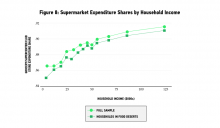
 Shared by Housing Is
on Jul 5, 2018
Shared by Housing Is
on Jul 5, 2018

 Shared by Housing Is
on Jul 5, 2018
Shared by Housing Is
on Jul 5, 2018
 Shared by Housing Is
on Jul 5, 2018
Shared by Housing Is
on Jul 5, 2018
 Shared by Steve Lucas
on Feb 27, 2018
Shared by Steve Lucas
on Feb 27, 2018
 Shared by Steve Lucas
on Feb 27, 2018
Shared by Steve Lucas
on Feb 27, 2018
 Shared by Steve Lucas
on Jun 22, 2017
Shared by Steve Lucas
on Jun 22, 2017
 Shared by Steve Lucas
on Jun 22, 2017
Shared by Steve Lucas
on Jun 22, 2017
 Shared by Steve Lucas
on Jun 8, 2017
Shared by Steve Lucas
on Jun 8, 2017
 Shared by Housing Is
on Jun 8, 2017
Shared by Housing Is
on Jun 8, 2017

 Shared by Keely Stater
on Jun 6, 2017
Shared by Keely Stater
on Jun 6, 2017

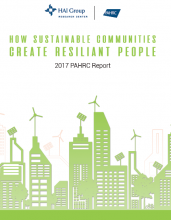
 Shared by Keely Stater
on Jun 6, 2017
Shared by Keely Stater
on Jun 6, 2017

 Shared by Abra Lyons-Warren
on Feb 6, 2017
Shared by Abra Lyons-Warren
on Feb 6, 2017

 Shared by Amber-Lee Leslie
on Jan 27, 2017
Shared by Amber-Lee Leslie
on Jan 27, 2017





